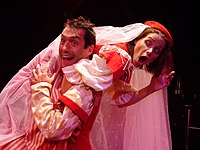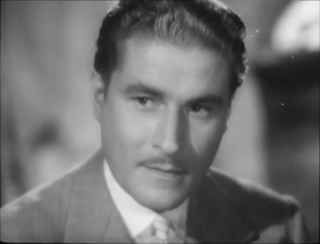
Amedeo Nazzari was an Italian actor. Nazzari was one of the leading figures of Italian classic cinema, often considered a local variant of the Australian–American star Errol Flynn. Although he emerged as a star during the Fascist era, Nazzari's popularity continued well into the post-war years.

The Bandit is a 1946 Italian drama crime film directed by Alberto Lattuada and starring Anna Magnani, Amedeo Nazzari and Carla Del Poggio. It was shot on location in Turin. Nazzari won the Nastro d'Argento as Best Actor for his performance. The film was entered into the 1946 Cannes Film Festival.
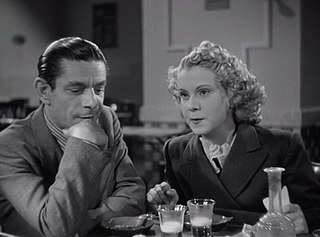
Lively Teresa is a 1943 Italian "white-telephones" comedy film directed by Mario Mattoli and starring Lilia Silvi, Roberto Villa and Carlo Ninchi. It was produced in the style of the White Telephone comedies popular during the Fascist era.
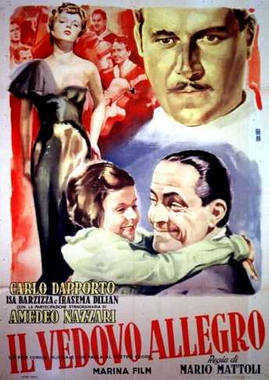
The Merry Widower is a 1950 Italian romance film directed by Mario Mattoli and starring Carlo Dapporto, Isa Barzizza and Amedeo Nazzari. It was shot at the Farnesina Studios in Rome. The film's sets were designed by the art director Piero Filippone.

Lauro Gazzolo was an Italian actor and voice actor.

Headlights in the Fog is a 1942 Italian drama film directed by Gianni Franciolini and starring Fosco Giachetti, Luisa Ferida and Antonio Centa. The film's art direction was by Camillo Del Signore. It was made at the Palatino Studios in Rome and on location in Piedmont and Liguria.

The Ferocious Saladin is a 1937 Italian "white-telephones" comedy film directed by Mario Bonnard and starring Angelo Musco, Alida Valli and Lino Carenzio. The film was made at Cinecittà in Rome. On 28 April 1937, Benito Mussolini visited the newly completed studio. Along with the historical epic Scipio Africanus, this was one of the films he saw being made. The film, a vehicle for the Sicilian comedian Angelo Musco, is about an unsuccessful old comedian forced to find another work. While he is selling cakes in a theatre, the audience discover the highly sought-after collectible cards of "The Ferocious Saladin". Inspired by the event, the comedian sets up a successful comic piece on stage.
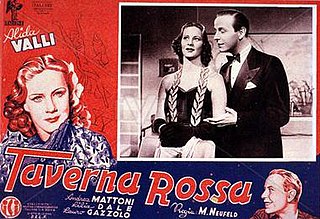
Red Tavern is a 1940 Italian "white-telephones" comedy film directed by Max Neufeld and starring Alida Valli, André Mattoni, and Lauro Gazzolo. It was made at Cinecittà in Rome. A young woman eventually marries a count after a series of misunderstandings.
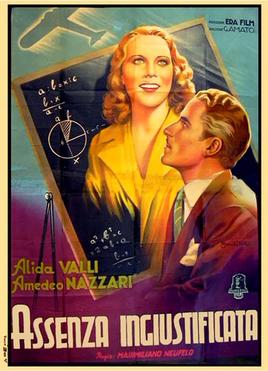
Unjustified Absence is a 1939 Italian "white-telephones" comedy film directed by Max Neufeld and starring Alida Valli, Amedeo Nazzari and Lilia Silvi. A girl leaves school to marry a doctor, but becomes annoyed by his constant absences and decides to secretly resume her studies.
Caravaggio, il pittore maledetto is a 1941 Italian historical drama film directed by Goffredo Alessandrini and starring Amedeo Nazzari, Clara Calamai and Lamberto Picasso. Nazzari portrays the painter Caravaggio as a wayward genius. It was one of his favourite screen roles.

Lilia Silvi was an Italian film actress. Silvi was one of several young actresses presented as an Italian equivalent to the Canadian-born Hollywood star Deanna Durbin. She appeared opposite Amedeo Nazzari, the most popular Italian star of the era, in five films.
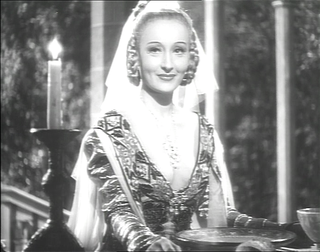
The Jester's Supper is a 1942 Italian historical film directed by Alessandro Blasetti and starring Amedeo Nazzari, Osvaldo Valenti and Clara Calamai. It was based on a play of the same title by Sem Benelli, which had later been turned into an opera by Umberto Giordano. Like the play, the film is set in the 15th century Florence of Lorenzo the Magnificent and portrays a rivalry that leads to a series of increasingly violent practical jokes.

The Ten Commandments is a 1945 Italian drama film directed by Giorgio Walter Chili. It features an ensemble of Italian actors in episodes based on the Ten Commandments.
The Document is a 1939 Italian "white-telephones" comedy film directed by Mario Camerini and starring Ruggero Ruggeri, Armando Falconi and María Denis.

Then We'll Get a Divorce is a 1940 Italian "white-telephones" comedy film directed by Nunzio Malasomma and starring Amedeo Nazzari, Vivi Gioi and Lia Orlandini.
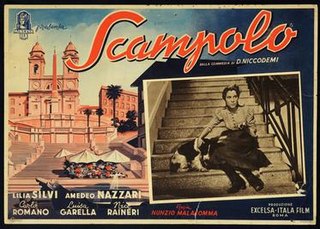
Scampolo is a 1941 Italian comedy film directed by Nunzio Malasomma and starring Lilia Silvi, Amedeo Nazzari and Carlo Romano. The story is based on a play by Dario Niccodemi which has been adapted for the screen a number of times.

Big Shoes is a 1940 Italian "white-telephones" comedy film directed by Dino Falconi and starring Amedeo Nazzari, Lilia Silvi and Elena Altieri. It is based on a play by Sándor Hunyady which had previously been turned into a 1939 Hungarian film Istvan Bors.
Happy Days is a 1942 Italian "white-telephones" comedy film directed by Gianni Franciolini and starring Lilia Silvi, Amedeo Nazzari and Leonardo Cortese. It was based on a play by Claude-André Puget, which had been made into a French film Les jours heureux the previous year.
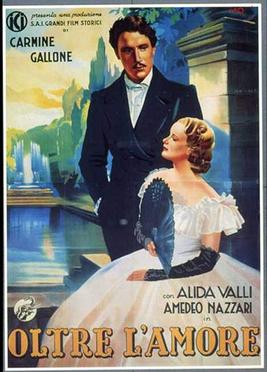
Beyond Love is a 1940 Italian historical drama film directed by Carmine Gallone and starring Alida Valli, Amedeo Nazzari and Osvaldo Valenti. It is based on the 1829 novella Vanina Vanini by Stendhal.

One Hundred Thousand Dollars is a 1940 Italian "white-telephones" comedy film directed by Mario Camerini and starring Assia Noris, Amedeo Nazzari and Lauro Gazzolo.


















